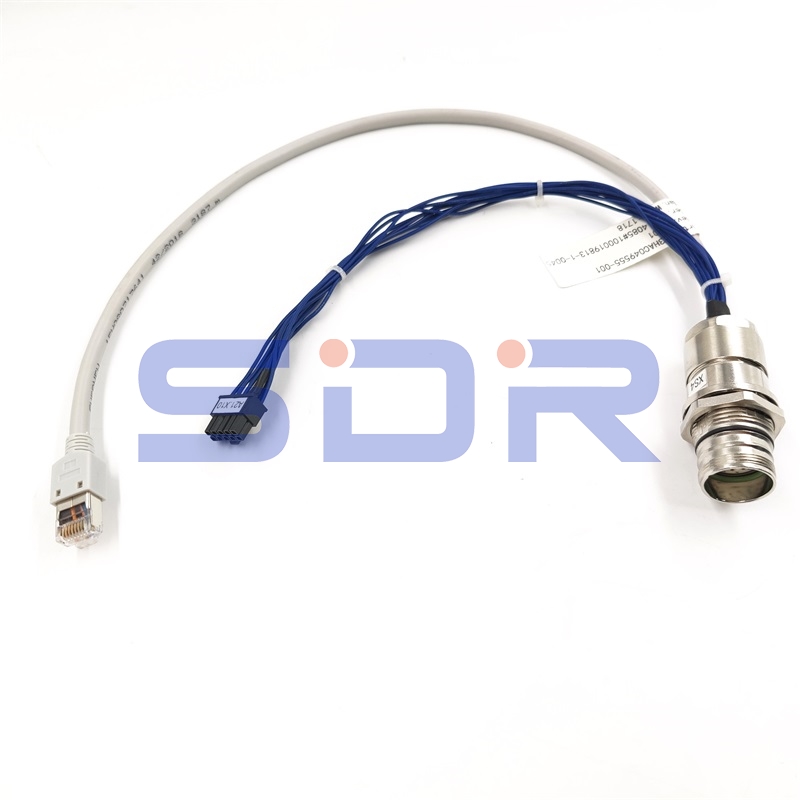In modern industrial environments, robotic systems operate within densely packed layouts of automated machinery and electronic components. This concentration of equipment often generates high levels of electromagnetic interference (EMI), which can disrupt communication signals, compromise data integrity, and ultimately impact the efficiency and reliability of robotic applications. ABB Robot Cables are specifically engineered to overcome these challenges, ensuring stable signal transmission even in environments with significant electromagnetic interference.

Understanding Electromagnetic Interference in Industrial Environments
Electromagnetic interference occurs when electromagnetic fields from one device affect another, often resulting in data loss, signal distortion, or equipment malfunction. In industries like automotive, electronics manufacturing, and heavy machinery, EMI can be pervasive due to the close proximity of numerous electronic systems and high-power equipment. Robot Cables, which carry both power and data, are particularly vulnerable to EMI, as interference can compromise both the electrical power supply and the transmission of control signals necessary for robot operation.
ABB Robot Cables are designed with multiple layers of protection to counteract the effects of EMI. These protective measures include:
ABB Robot Cables incorporate high-density shielding materials, such as braided copper or aluminum foil, which act as barriers to electromagnetic waves. The shielding effectively blocks external interference from affecting the internal conductors, ensuring that signals remain clear and undistorted.
The cable’s multiple layers of shielding are designed to guard against both high-frequency and low-frequency interference, making them suitable for use near powerful machinery and complex automation systems.
For data lines, ABB employs twisted-pair configurations, which enhance the cable’s resistance to EMI. By twisting pairs of wires, the electromagnetic fields generated by each wire effectively cancel each other out, reducing susceptibility to external noise.
Twisted pairs also provide improved transmission reliability, which is essential for accurate robot control in high-EMI settings.
The insulation materials used in ABB Robot Cables are carefully selected for their dielectric properties, providing another layer of protection from interference. These materials help to minimize signal leakage and provide robust insulation between internal conductors, further safeguarding data integrity.
This choice of insulation enhances the cable's durability, allowing it to withstand harsh environmental conditions while maintaining signal stability.
ABB Robot Cables are specifically designed to maintain signal consistency, even when operating in areas with high levels of EMI. Key features that enable stable transmission include:
The combination of shielding, twisted-pair design, and high-quality insulation materials ensures that ABB Robot Cables provide superior signal integrity. This allows robotic systems to perform complex tasks accurately, without the risk of delayed or disrupted signals.
In production lines, this stability is critical for processes requiring precision and synchronization between multiple robotic units, helping prevent costly errors and downtime.
ABB Robot Cables’ anti-interference features make them ideally suited for environments with high densities of automated equipment. This includes factories with assembly lines, sorting systems, and packaging machines, where the interplay of multiple robotic arms and sensors requires uninterrupted communication.
By effectively shielding against EMI, ABB Robot Cables contribute to the efficiency of entire manufacturing systems, supporting faster production rates and consistent output quality.
The anti-interference capabilities of ABB Robot Cables bring significant advantages in industrial environments, including:
Reduced Maintenance Costs: EMI-related disruptions often lead to signal loss and intermittent equipment failure, which increases the need for maintenance. ABB Robot Cables, with their EMI-resistant design, reduce such occurrences, helping to lower overall maintenance expenses.
Enhanced Operational Efficiency: By ensuring reliable signal transmission, ABB Robot Cables support continuous robotic operation, which is essential for meeting production targets and maintaining workflow efficiency.
Increased Equipment Longevity: EMI can wear down electronic components over time, leading to shorter equipment life cycles. ABB Robot Cables protect against these effects, contributing to extended operational lifespans for robotic systems.
As factories and industrial facilities become increasingly automated, the challenges posed by electromagnetic interference are more prominent than ever. ABB Robot Cables offer a comprehensive solution to these challenges, providing stable, interference-resistant performance that enables robotic systems to operate reliably in high-EMI environments. With advanced shielding, specialized insulation, and innovative design features, ABB Robot Cables support precision, efficiency, and longevity for automated industrial applications, making them an essential component in today’s demanding industrial landscape.